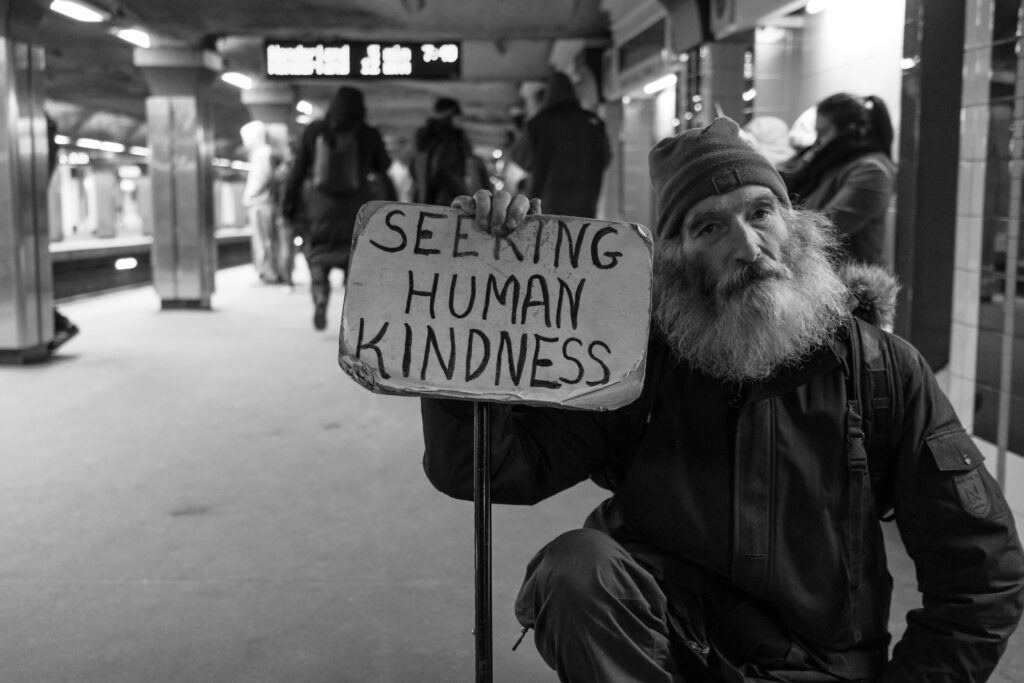The nature vs nurture debate is, perhaps, one of the oldest and most talked-about topics in the field of Psychology. Nature refers to the biological factors we’re born with that shape many aspects of our character and personality, like our capacity for empathy. Nurture, on the other hand, refers to the experiences and influences that, over time, mold us. Our parents, friends, environment, and even the TV shows we watch all play a massive role in the person we become, including how our empathy develops and is expressed.
While some argue that nurture has a larger impact and others say that it’s nature, the truth is that there is a complex relationship between them, and both have a role to play. We are born with certain genetic traits, and our environment and experiences mold them in various ways.
Empathy Defined: More Than Just Feeling
So how does empathy come into the picture? Clearly, some people appear to possess a greater ability to empathize, while others come off as indifferent and uncaring. Are we born with empathy, or is it something we learn through experience and the observation of the behavior of others?
To clarify, empathy is the ability to understand another’s perspective; to feel what they feel, even if you’ve never gone through the same experience. Empathy is crucial in building positive relationships and connecting with others. Being able to understand how another person feels, even if you’ve never been in their shoes, makes them feel seen and heard. If they’re hurting, you feel their pain almost as if it were your own. If they’re excited, you’re excited. When you empathize with someone, it revolutionizes your ability to connect. It transforms your entire mindset.
A Real-Life Example: The Empathy Gap
A few months ago, I had lunch with a coworker at a local restaurant. On the way there, we passed several homeless people. My coworker began to discuss his views about them, stating that many of them were lazy and addicted to drugs. He continued, saying that he has no compassion for anyone who uses drugs. That was the choice they made, and it is entirely their fault that they were in that situation.
While he wasn’t necessarily wrong, his lack of empathy struck me. He dismissed the needs of these individuals based on an assumption. Although there certainly are many homeless who likely struggle with addiction, not all of them do. But when he looks at them, that’s all he sees — an addict searching for his next fix.
Empathy as a Core Value: Why It Matters
Over the past two years, I’ve been exploring the idea of empathy as a value. When something is a core value, you can’t simply dismiss it when it’s convenient to do so.
Empathy allows us to see the world from a perspective other than our own; it enables us to understand others’ experiences, even if we don’t necessarily agree with their actions. The next time you see someone who is different from you, try to empathize with their situation; try to feel what they feel. It may forever change you and the way you connect with the world around you.

The Paradox of Understanding
Empathy isn’t just something you feel; it’s something you can practice and get better at, like working out a muscle. The secret sauce to empathy is really leaning into one key idea: understanding. When you truly get where someone is coming from, you can show kindness, even when it feels like your own values are being tested. I like to call this the “paradox of understanding.”
When someone lacks empathy, they always seem to have some justification for it. My coworker, for example, believes that all homeless people are lazy or drug addicts. He thinks he understands what their situation is, but he doesn’t. Has he spent time talking with them and getting to know them? Of course not. In fact, he actively avoids them.
I’ve chosen a different path. I devote a fair deal of time at a local homeless shelter here in Columbia, SC because I want to understand what it truly means to serve and gain a truly unbiased understanding of what these people are going through and why. And what I’ve discovered is that every situation is different and filled with nuance. The reasons that people are in poverty could fill a telephone book.
My coworker’s lack of empathy is a result of his lack of understanding and ignorance. When we judge others based solely on assumptions and refuse to question our beliefs, we miss an opportunity for self-growth. However, when we explore empathy as a value, it leads us on a journey by giving us a chance to see the world from another perspective; to feel what someone else feels. When we truly understand someone, we can’t help but love them. And that is the paradox of understanding. Whenever you judge someone without trying to empathize with them, one thing is true: You may think you understand them, but you don’t.
“In the moment when I truly understand my enemy, understand him well enough to defeat him, then in that very moment I also love him. I think it’s impossible to really understand somebody, what they want, what they believe, and not love them the way they love themselves.” Ender Wiggin in Ender’s Game by Orson Scott Card
If you lack empathy, you lack understanding. But, if you choose to explore empathy as a value and let it guide you, this path will lead you to a deeper understanding of others. And that journey will ultimately lead to greater meaning and connection — not only with others, but with the world.

